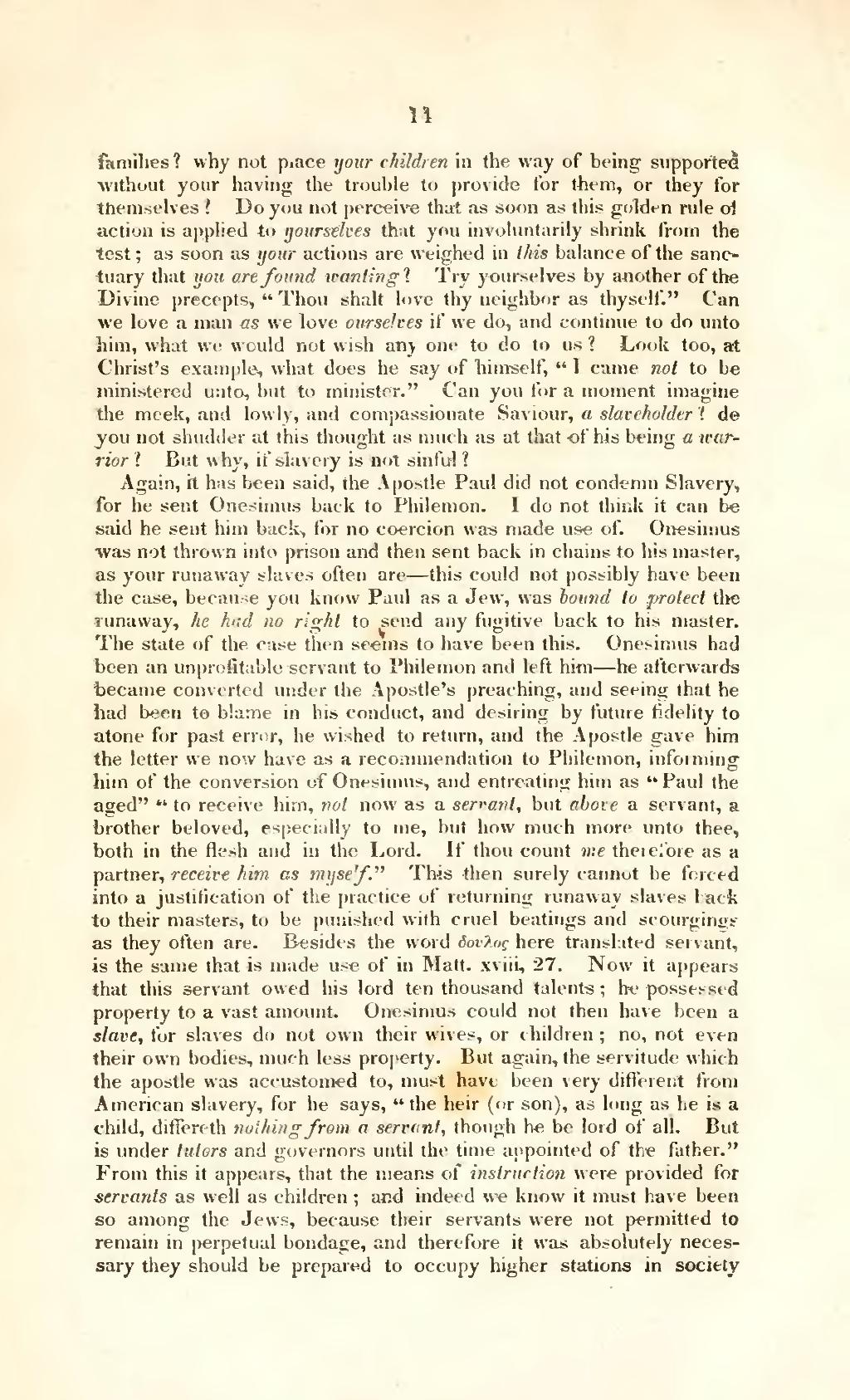14
families? why not place your children in the way of being supported without your having the trouble to provide for them, or they for themselves? Do you not perceive that as soon as this golden rule of action is applied to yourselves that you involuntarily shrink from the test; as soon as your actions are weighed in this balance of the sanctuary that you are found wanting? Try yourselves by another of the Divine precepts, "Thou shalt love thy neighbor as thyself." Can we love a man as we love ourselves if we do, and continue to do unto him, what we would not wish any one to do to us? Look too, at Christ's example, what does he say of himself, "I came not to be ministered unto, but to minister." Can you for a moment imagine the meek, and lowly, and compassionate Saviour, a slaveholder? do you not shudder at this thought as much as at that of his being a warrior? But why, if slavery is not sinful?
Again, it has been said, the Apostle Paul did not condemn Slavery, for he sent Onesimus back to Philemon. I do not think it can be said he sent him back, for no coercion was made use of. Onesimus was not thrown into prison and then sent back in chains to his master, as your runaway slaves often are—this could not possibly have been the case, because you know Paul as a Jew, was bound to protect the runaway, he had no right to send any fugitive back to his master. The state of the case then seems to have been this. Onesimus had been an unprofitable servant to Philemon and left him—he afterwards became converted under the Apostle's preaching, and seeing that he had been to blame in his conduct, and desiring by future fidelity to atone for past error, he wished to return, and the Apostle gave him the letter we now have as a recommendation to Philemon, informing him of the conversion of Onesimus, and entreating him as "Paul the aged" "to receive him, not now as a servant, but above a servant, a brother beloved, especially to me, but how much more unto thee, both in the flesh and in the Lord. If thou count me therefore as a partner, receive him as myself." This then surely cannot be forced into a justification of the practice of returning runaway slaves back to their masters, to be punished with cruel beatings and scourgings as they often are. Besides the word δουλος here translated servant, is the same that is made use of in Matt. xviii, 27. Now it appears that this servant owed his lord ten thousand talents; he possessed property to a vast amount. Onesimus could not then have been a slave, for slaves do not own their wives, or children; no, not even their own bodies, much less property. But again, the servitude which the apostle was accustomed to, must have been very different from American slavery, for he says, "the heir (or son), as long as he is a child, differeth nothing from a servant, though he be lord of all. But is under tutors and governors until the time appointed of the father." From this it appears, that the means of instruction were provided for servants as well as children; and indeed we know it must have been so among the Jews, because their servants were not permitted to remain in perpetual bondage, and therefore it was absolutely necessary they should be prepared to occupy higher stations in society
